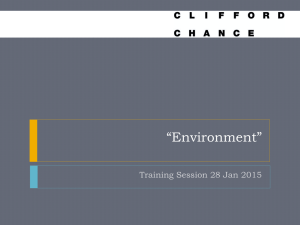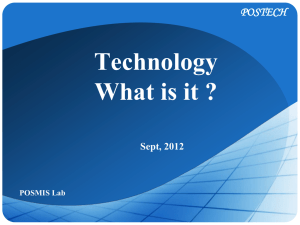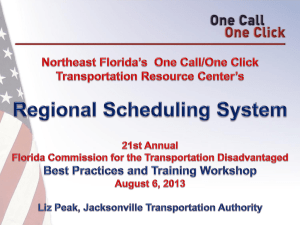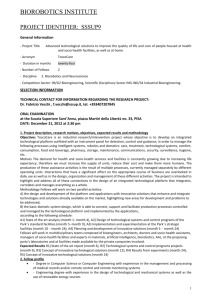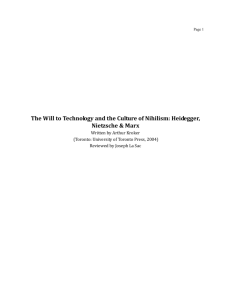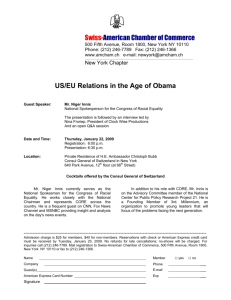CATHOLIC STUDIES PAPER ROUND 3 for DR. KENNEDY
advertisement
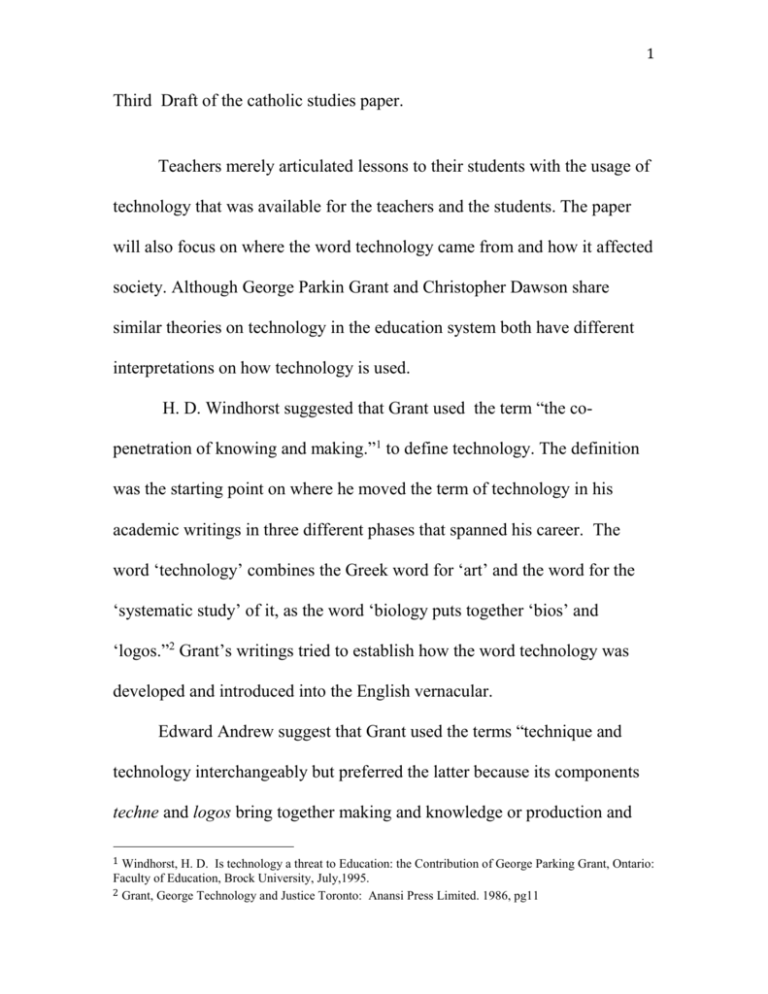
1 Third Draft of the catholic studies paper. Teachers merely articulated lessons to their students with the usage of technology that was available for the teachers and the students. The paper will also focus on where the word technology came from and how it affected society. Although George Parkin Grant and Christopher Dawson share similar theories on technology in the education system both have different interpretations on how technology is used. H. D. Windhorst suggested that Grant used the term “the copenetration of knowing and making.”1 to define technology. The definition was the starting point on where he moved the term of technology in his academic writings in three different phases that spanned his career. The word ‘technology’ combines the Greek word for ‘art’ and the word for the ‘systematic study’ of it, as the word ‘biology puts together ‘bios’ and ‘logos.”2 Grant’s writings tried to establish how the word technology was developed and introduced into the English vernacular. Edward Andrew suggest that Grant used the terms “technique and technology interchangeably but preferred the latter because its components techne and logos bring together making and knowledge or production and 1 Windhorst, H. D. Is technology a threat to Education: the Contribution of George Parking Grant, Ontario: Faculty of Education, Brock University, July,1995. 2 Grant, George Technology and Justice Toronto: Anansi Press Limited. 1986, pg11 2 science.”3 This reveals that Grant understood how the making and the knowledge to technology would also help in the sciences. Grant suggested that when ‘technology’ is used to describe the actual means of making events happen, and not simply the systematic study of these means, the word reveals to us the fact that these new events happen because we Westerners willed to develop a new unique co-penetration of the arts and sciences, a co-penetration which has never before existed.4 This suggests that this type of word never existed before, so the word appealed to westerners who incorporated it in their vernacular. Grant suggests “the English word technology with its Greek parts and the novelty of combining words in such a fashion, shows what a transformation took place in our sciences, our arts and their interrelation, from what they were in our originating civilization from which the parts of the word came.”5 This reveals that the technology brought the arts, sciences and the interrelationship with the civilization where the word came from. Hugh Donald Forbes suggests that Grant’s writings on technology display the belief that “the development of technology was serving to 3 Andrew, Edward. George Grant on the political Economy of Technology. Bulletin of Science, Technology & Society (2003) 23:479-485. 4 Grant, George Technology and Justice Toronto: Anansi Press Limited. 1986, pg. 12. 5 Grant, George Technology and Justice Toronto: Anansi Press Limited. 1986, pg 13. 3 increase human freedom, even though it might in fact be gradually limiting or undermining our freedom.”6 Paul Massolin agrees with Hugh Donald Forbes on Grant’s attitude toward technology saying that “technology alienated the individual from his true self because it reduced his higher philosophical goals to the mere objective of obtaining technological freedom.”7 The technology in a sense is taking over the individual’s freedom is trying to peruse more higher philosophical goals in their live. Grant’s works was that he wanted to understand the word of technology and then other writings saw how technology was freeing the individual but also restricting the individual from the philosophical goals. Even though technology offers a sense of freedom for an individual, that the individual is losing a piece of himself in trying to achieve this technological freedom. Massolin explains: “people become servants to the machines and they lack true freedom precisely because the pursuit of technology became their dominant activity so, much in fact that it curtailed the pursuit of other societal goods.”8 People are so preoccupied with the pursuit of technology that it is taking over their lives, and they are missing 6 Forbes, Donald Hugh. George Grant: A guide to his thoughts. Toronto; University of Toronto Press. 2007 pg 29. 7 Massolin, Philip. Context and Content: Harold Innis, Marshall McLuhan, and George Grant and the Role of Technology in Modern Society. Past Imperfect, Vol 5 1996,pp 81-118. 8 Massolin, Philip. Context and Content: Harold Innis, Marshall McLuhan, and George Grant and the Role of Technology in Modern Society. Past Imperfect, Vol 5 1996,pp 108. 4 what is happening out in the real world. Massolin continues: “Grant also objected to the way in which modern technology controlled an individual in two ways understanding of himself and of his historical circumstances.”9 This shows that the individual is not concerning themselves with the true understanding of themselves and not looking back on how the individual got to this time and place. The usage of technology has taken away all of the exploration of understanding one’ self and the history behind the individual. Modern technology is taking the individual’s identity and his past away from himself. Massolin suggests, “the individual was therefore restricted in what he could think or believe, since technology itself limited the terms by which the world could be understood.”10 This suggests that technology is closing the mind of the individual, and limiting it to only understanding what technology can explain. Arthur Kroker mentions that Grant explores “ the meaning of technology as the dependency that has been thought within the broader categories of self and civilization.”11 Kroker says “Under the pressure of rapid technological change, the centre may no longer hold but this just means that everything lies in the 9 Ibid 109. Ibid 109. 11Kroker, Arthur. Technology And the Canadian Mind :Innis/McLuhan/ Grant. Montreal: New World perspectives 1984. 48. 10 5 balance between catastrophe and creation as possible human destinies.”12 Technology is changing the balance of human destinies very quickly and destinies are becoming entangled with the pressures from technology. Kroker discussed “technology is now the deepest language of politics, economy, advertising and desire.”13 This shows that technology is well advanced, and in turn it can control men. And technology can control men’s capabilities to control politics, economy and the education system. This analogy that Kroker uses is from the Québec film maker, JeanClaude Labrecque, when he was talking about “ the threat of cultural obliteration posed by the new technologies of communications: It’s like snow: it keeps falling and all you can do is go on shoveling.”14 The Québec filmmaker was concerned that the technologies that were being developed for communications were going to obliterate the culture that already existed. Then Kroker uses that analogy of snow to explain how “technology is snow, or a nuclear winter; that is Canadian, and by extension a world situation.”15 Once technology has been developed it is just like snow, it just comes more quickly and harder for everyone to keep up. 12 Kroker, Arthur. Technology And the Canadian Mind :Innis/McLuhan/ Grant. Montreal: New World perspectives 1984. Pg 125. 13 Ibid 127. 14 Ibid.129. 15 Kroker, Arthur. Technology And the Canadian Mind :Innis/McLuhan/ Grant. Montreal: New World perspectives 1984. Pfg. 129. 6 Andrew mentions that in Dennis Lee’s article on “Grant’s Impasse” “technological society has deprived us of any standards by which our world can be judged; our lives are so informed, indeed constituted, by technique that we have no standpoint outside the technological civilization that we, as moral agents are required to judge.”16 The citizens really forget to stand up for their rights because technology has been part of society for so long. Tom Abels states that, “technology is an extension of and not separate from humans.”17 Today technology is part of our lives and we cannot be separated from it. He then states that “technology amplifies the human capabilities and an expression of what makes us human and simultaneously, it modifies the human on many levels.”18 Forbes explains in the later writings of Grant- “Grant himself critized the common assumption that technology as simply a collection of practical techniques a set of tools, procedures, devices or tools that were used in the pursuit of freedom, with whatever ends the people choose.”19 This shows that Grant did not believe that it was used as a tool or instrument but it was a way of knowing and relating to the world and other people. 16 Andrew, Edward. George Grant on the political Economy of Technology. Bulletin of Science, Technology & Society (2003) 23:479-485 17 Abels, P Tom Technology, Globalization and the University. International Journal on World Peace. Vol 15 No. 3 September 1998 29- 44. 18 19 ibid, 29. Forbes, Donald Hugh. George Grant: A guide to his thoughts. Toronto; University of Toronto Press. 2007 pg 31. 7 Andrew states, “at the same time, he appeared to think that these technological developments were inevitable, that moral argument and political action could not limit the direction and use of the technology.”20 This suggests, the use of technology has led to a moral argument for men. Technology can be a part of politics, and the direction t it takes can led to certain political actions with the usage of technology. Edward Andrew explains that Grant’s thoughts on technology are set up in two ways: “1) that technique is not simply something that we use but also is something that uses us and constitutes our very identity and 2) that technique depends on money and power or is contextualized in political economy.”21 This suggests that human beings use technology to gain more power and money over other human beings. Technology is part of our identity and it is hard to step back from it. Kroker believes that Grant meditated on two possible thoughts towards technology.” The two thoughts are “mediate and immediate, of technology on the self and the implications of technological society in the broader question of the direction of Western civilization.” 22 The idea is that 20 Andrew, Edward. George Grant on the political Economy of Technology. Bulletin of Science, Technology & Society (2003) 23:479-485 21 Andrew, Edward. George Grant on the political Economy of Technology. Bulletin of Science, Technology & Society (2003) 23:479-485 22 Kroker, Arthur. Technology And the Canadian Mind :Innis/McLuhan/ Grant. Montreal: New World perspectives 1984. Pg, 48. 8 technology has a huge impact on the western world, and how technology influences the individual. Kroker suggests that Grant “meditates upon technology from the inside and outside, this is from the perspective on psychology and aesthetic experience.”23 This is suggesting, that from a human perspective that technology should be experienced both inside and out and that the mind and body can enjoy the experience. Christopher Dawson has three different chapters that discuss the idea of technology in society. He discusses the early influence of Science and Technology during the middle ages. “Before the middle ages came, Christian education was basically a unity, including classical literature and Christianity, this is what held education together until the arrival of science and technology.”24 This shows that the Christians had been cemented in their education before science and technology entered the middle ages. Leonardo da Vinci was one of the top Middle Ages scientists that studied and was interested in the human body and mechanical contrivance. Da Vinci’s was interested in science and technology where he was a medical faculty at the University of Padua. This was where humanism was founded within the Middle Ages. (unsure if I should leave it in) 23 Ibid, 48. Dawson, Christopher. The Western Crisis of Western Education. Washington: The Catholic University of America Press. 1961.pg 33 24 9 During the middle ages there were new “mechanical arts were developed and were used as instruments of Western technology- the clock, the gun and the printing press.”25 There were already technological societies being developed in the Middle Ages. Dawson continues to mention in chapter fourteen that the new technology that is being introduced to the West is disconnecting people from their spiritual Christian roots. He continues to say “at the same time there are few who realize the dangers to human freedom involved in the technological order or who totally reject the spiritual values that we have inherited from the Christian culture of the past.” 26 This is suggesting that people using technology is endangering their freedom and not remembering their Christian culture before technology took over their lives. Dawson argues that “ it is necessary to clarify the issues and to show how the trend of the modern world towards inhuman totalitarianism demands an alliance of the divided forces of humanism and religion if it is to be mastered.”27 This shows that the modern world can get confused that religion is the main stay in the individual life. The religion can try to solve any confusion of the individual. 25 Dawson, Christopher. The Western Crisis of Western Education. Washington: The Catholic University of America Press. 1961.pg 33 26Ibid, 143-144. 27 Ibid 144 10 In the section of the University Curriculum in a North American context Grant mentions in the main topic sentence that “the primary purpose in Canadian society is to keep technology dynamic within the context of the continental state capitalist structure.”28 He continues to mention that technology has gradually become the dominant field in the western civilization and most definitely had an influence on men and civilization. Grant discusses about how universities “within the technological societies is the cultivation of those sciences which issue the mastery of human and non-human nature.”29 In the last one hundred years, the technological society controlled not only non human, but also equally the control of human nature. Grant also argues “that in society the demands of technology are dominating morality and often obscured by the fact that the modern scientific movement has been intimately associated with the moral striving for equality.”30 Human morality seems to be on the losing side of technology and scientific movements and technology is taking over the lives of humans. In Abels’ article suggests how technology is taking over the education system. The example he is “students would travel great distances 28 Grant, George. Technology and Empire. Toronto: House of Anansi. 1969. 113 Ibid, 113. 30 Grant, George. Technology and Empire. Toronto: House of Anansi. 1969 129. 29 11 to listen to lectures by scholars, but now they can access the knowledge via the Internet.”31 This suggests that students are really comfortable in using the Internet and that the students can have everything at their fingertips. Abels then argues that that the “enabling technology as a meme, has infected higher education at process, content and delivery level almost to the point where institutions have become primary carrier of these viruses.”32 This means that technology has taken over the students and the institutions are losing the battle of trying to educate the students. Dawson suggests a possible problem between technology and education. Dawson draws a comparison between Frankenstein the western man, and the technological order. He suggests, as Frankenstein was a mechanical monster that got out of hand and even threaten his own existence, he is suggesting that the same thing is happening with technology. Men have created the technological order “but yet have not found a way to control it.”33 So in turn it is the technological order that is controlling men. If the men can’t find away to control it technology will destroy them like Frankenstein did. Dawson suggests that 31Abels, P Tom Technology, Globalization and the University. International Journal on World Peace. Vol 15 No. 3 September 1998 .30. 32 Ibid, 30-31. 33 Dawson, Christopher. The Western Crisis of Western Education. Washington: The Catholic University of America Press. 1961.pg 145 12 “the technological order which today threatens spiritual freedom and even human existence by the unlimited powers which it puts at the service of human passion and will loses all its terror as soon as it is subordinated to a higher principle.”34 The power of technology is unlimited and that the human spiritual freedom will be subordinate to technology. In closing the research showed the same problems of technology in the two different eras but, the problems are still relevant today. Grant and Dawson had the same theory about technology, and that it was imposing on Western Civilization to better the society. Today technology is all around us and is shared all over the world, and how students are always adapting to the technology. 34 Ibid, 154.
